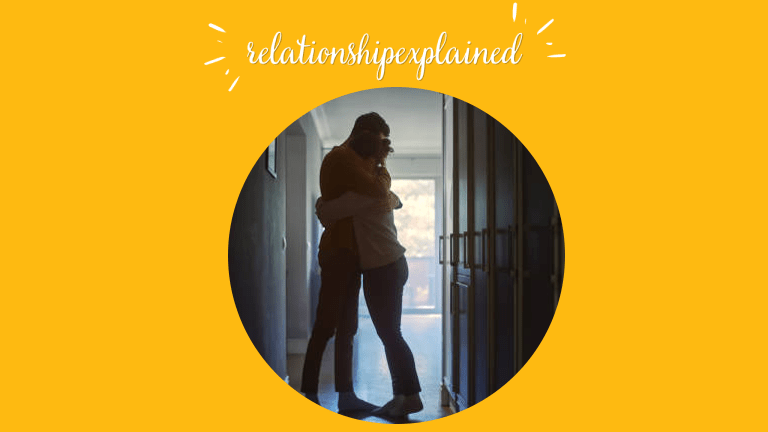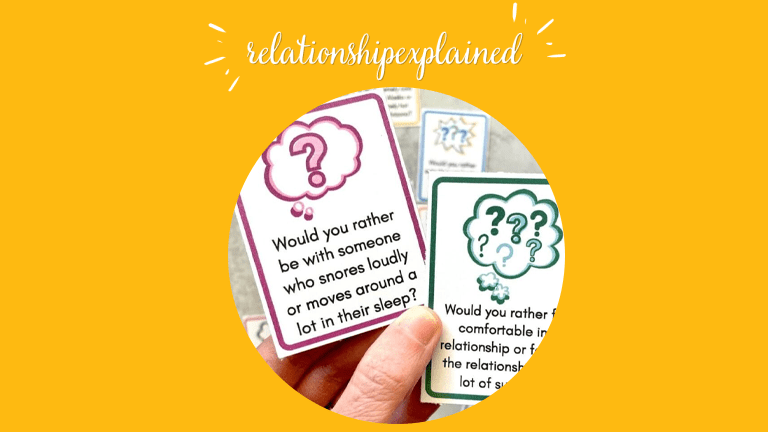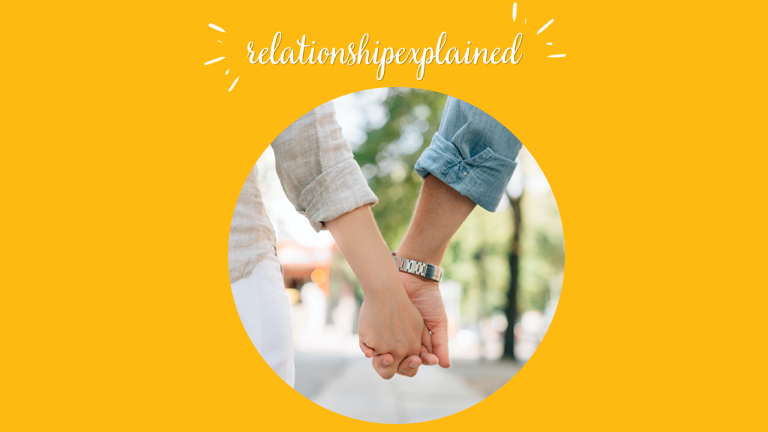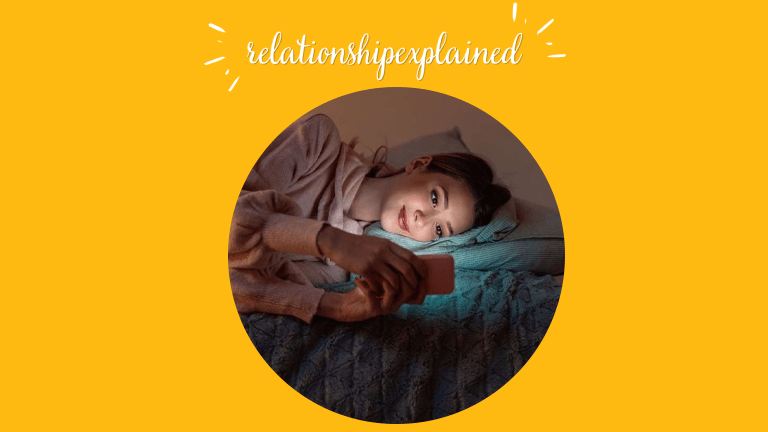Is "I Can't Live Without You" Real Love?
Wondering whether the statement “I can't live without you” indicates true love? In that case, here is a guide that can help you know the truth.
Love is a powerful force that has puzzled, inspired, and captivated us for centuries.
We often hear people declare, "I can't live without you," in the name of love. But is this sentiment a true reflection of real love? In the following discussion, we'll explore the depths of genuine love and whether it truly means being unable to exist without someone.
Brace yourself for a journey through the complexities of human emotions as we navigate the fine line between affection and dependence. This guide seeks to unravel the essence of "I can't live without you" in the realm of authentic love.
Why This Statement May Not Indicate Real Love
1. Dependency Vs. Real Love
When someone says, "I can't live without you," it might seem like a profound declaration of love, a way to sound romantic and express deep feelings. However, the truth is quite different. This statement often reveals a state of dependency rather than genuine love.
In some cases, it may even indicate an extreme form of infantile dependency, where a person mistakenly confuses it with love, believing it will last forever. It's important to remember that infants rely on the care and love of adults for survival. However, adults are capable of self-sufficiency and leading fulfilling lives without depending on one specific person.
2. Infantile Dependency In Romance
In romantic relationships, some individuals regress into an infantile state of dependency, driven by a romantic feeling that makes them believe they cannot exist without a specific person. They expect their partner to accept the role of a devoted emotional caretaker, akin to a mother with an infant.
However, this isn't a healthy foundation for adult love. In mature relationships, adults don't addictively "need" each other. Instead, they consciously choose to "want" each other, making it a matter of free will rather than dependency, fostering a more balanced and mutually fulfilling partnership.
3. Being Wanted Vs. Being Needed
For adults, being wanted holds more significance than being needed. Mature individuals are self-dependent unless they have physical disabilities or other limitations. While they may appreciate help, they don't exhibit compulsive neediness that clings to their loved ones every moment.
In healthy adult relationships, the focus is on mutual equality and interdependence, not co-dependency or infantile, parasitical-like dynamics. It's about sharing their dreams and life with a loved one rather than expecting them to fulfill every need at every moment.
4. Authenticity Over Obsession
Another reason why uttering "I can't live without you" may not indicate real love lies in the distinction between authenticity and obsession. True love is rooted in genuine emotions and a desire to share one's life with a partner. On the contrary, obsession fixates on the idea of an individual, often idealizing them and overlooking their flaws.
When someone becomes the object of obsession, it can lead to possessiveness, jealousy, and a skewed sense of reality. In authentic love, individuals appreciate their partner's uniqueness, embracing both strengths and weaknesses and allowing each person to grow individually and together. Obsession, on the other hand, can stifle personal growth and lead to an unhealthy dynamic where one person's existence seems solely dependent on the other.
Survival And Recovery For Adults
The reality is that able-bodied and able-minded adults can survive, take care of themselves, recover from the loss of a loved one, and find new love if necessary. Losing a loved one can be agonizing, and the pain may persist, but adults can eventually return to a state of well-being.
That said, the feeling of missing that person may forever linger in their souls. So, the claim "I can't live without you" doesn't hold true for functioning adults, for life goes on, and love can find its rest in new connections and experiences.
Life continues, and love has a way of adapting and finding new avenues for expression. It's a testament to human strength that they can move forward, creating new connections and embarking on fresh experiences while cherishing the memories of those they've loved and lost.
In this journey of life, love may change its form, but it endures, offering hope, growth, and the possibility of new beginnings.
Why Caution And Evaluation Is Vital In Such Situations
Hearing someone say, "I need you, I can't live without you," in a romantic context isn't definitive evidence of an unhealthy relationship. However, it's essential to watch for this statement and be aware of its implications. And it should be considered alongside other factors when assessing a relationship, as it may signify a deeper issue of dependency that needs attention.
Communication is key, not just in a long-distance relationship, but in all relations, and words and expressions like these can serve as opportunities for deeper understanding. Rather than immediately labeling it as unhealthy, it's valuable to engage in open and empathetic dialogue to grasp the underlying emotions and expectations.
It's through these conversations that partners can work together to build a relationship not just based on need but also on choice and mutual respect, resulting in a fulfilling connection.
Extreme Dependency And Suicidal Thoughts
In some extreme cases, the mindset of "I can't live without you" can lead to a deeply troubling and isolating emotional state, sometimes culminating in suicidal thoughts. This alarming progression often occurs when the person they believe they love rejects them, an outcome stemming from their increasing dependency and possessiveness.
At this point, the feeling of sorrow can become all-encompassing, and they may perceive this anguish as an endless void with no respite in sight.
Nevertheless, certain solutions offer hope. Therapy, a process of self-discovery and self-love development, and unwavering support from loving friends and family can serve as powerful lifelines.
These elements can provide a glimmer of hope, even when a person wants to die. They offer the possibility that, someday, the darkness will dissipate, allowing them to spend their days in a more loving and hopeful manner, embracing the promise of an amazing future.
The Importance Of Professional Advice
If you're thinking of leaving a relationship with someone exhibiting severe neediness and co-dependency, seeking professional advice is a course of action that should not be overlooked. It's essential to recognize that the dynamics of such relationships can escalate to alarming extremes.
Infantile dependency in adults, when left unaddressed, can sometimes lead to physical violence, particularly when exacerbated by substances that lower self-regulation, further intensifying the destructive tendencies within the relationship.
This form of clinging to a relationship can inflict emotional and even physical harm on both parties involved. It becomes increasingly crucial to prioritize your well-being and safety in such circumstances.
Acknowledging the need for professional guidance is not a sign of weakness but rather a courageous step toward reclaiming your autonomy and ensuring a healthier future. It can leave you free from the constraints of a codependent and potentially harmful partnership. Your safety and happiness should always remain paramount.
Destructive Behaviors
Infantile dependency is often related to destructive tantrums that express inner doubt and fear that life without the presence of their beloved would be akin to figurative death. When combined with alcohol, drugs, or certain medications, this turmoil may escalate to violence, shattering the promise of love and care vital to a healthy relationship. Stalking behaviors can also emerge, driven by obsessive-compulsive tendencies linked to misidentified romantic love.
This cycle perpetuates fear and obsession, with severe consequences for all parties involved. Recognizing and addressing these patterns is crucial to preventing emotional harm, ensuring safety, and fostering healthier relationships through open communication, emotional awareness, and, when necessary, professional intervention.
Signs Of Healthy Relationships
In most adult relationships, the extreme "I can't live without you" mentality is rare. Healthy love should prioritize phrases like "I choose you, and I want you" over "I need you." The latter often signifies weakness, destructive addiction, and a lack of genuine love. This realization can be an answer to the prayers of any woman seeking a caring lover.
It's a course that leads to healthier, stronger, and more authentic expressions of love. When a woman feels chosen and wanted rather than needed, it fosters a profound sense of being cherished and valued in a relationship. Such a relationship is established on a bond built on mutual respect and a genuine desire to share life together.
Final Thoughts
The notion of "I can't live without you" in romantic relationships often masks deeper issues like infantile dependency and possessiveness, potentially leading to destructive behaviors and emotional turmoil. Healthy adult love is about choosing and wanting each other rather than feeling an absolute need. Fortunately, such extreme sentiments are rare in mature relationships.
Therapy, maturity, self-love development, and support from loved ones can be lifelines for those facing these challenges. They offer hope and healing, allowing love to regain its balance. To achieve healthier love, prioritize choices over needs, resilience over-dependence, and authenticity over obsession. This path leads to more fulfilling, balanced, and loving relationships, free from the shadows of extreme dependency.













